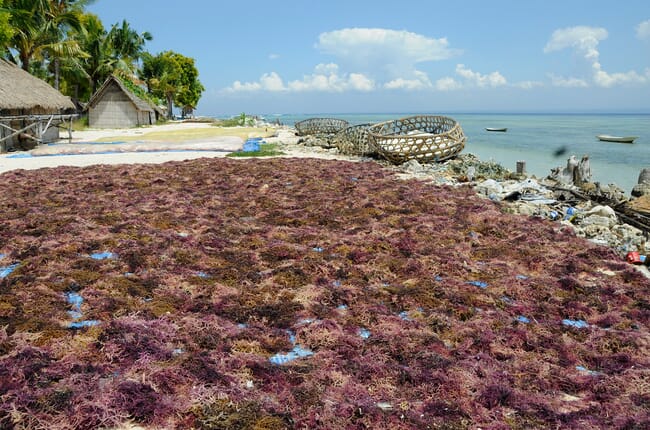
© Jeda Villa, Bali
Japan has the lowest rate of colon cancer in the world and although several previous studies have shown that Asians who eat seaweed regularly have lower risk of colon, colorectal and breast cancer, it was unclear which component was responsible for the anti-cancer effects.
In the study, whose findings were recently published in the journal Marine Drugs, the researchers broke down the structure of different types of red seaweed using enzymes and tested the sugars that were produced to see which one of them caused health benefits. Among the six different sugars produced, agarotriose and 3,6-anhydro-L-galactose, or AHG, showed the most promise.
"After we produced these sugars, we tested their prebiotic activity using the bacteria Bifidobacterium longum ssp. infantis," said Eun Ju Yun, in a press release from the Carl R Woese Institute for Genomic Biology.
B. infantis is a probiotic bacterium; it colonises the gut of infants and provides health benefits. Among the seaweed-derived sugars, the bacteria could only consume agarotriose, indicating that it works as a prebiotic – ie it improves the growth of probiotic bacteria.
"We also tested another strain, B. kashiwanohense, and found that it also consumed agarotriose," Jin said. "These results show us that when we eat red seaweed, it gets broken down in the gut and releases these sugars, which serve as food for the probiotic bacteria. It could help explain why Japanese populations are healthier compared to others."
The researchers also tested the sugars to see if they had any anti-cancer activity. "We found that AHG specifically inhibits the growth of human colon cancer cells and does not affect the growth of normal cells," Yun said. The anti-cancer activity of AHG is due to its ability to trigger apoptosis or cell death.
"There is a lot of information on how red seaweeds are degraded by microorganisms in the ocean and in the human body," said Kyoung Heon Kim, a professor of biotechnology and the co-advisor on the paper. "Our work explains why red seaweeds are beneficial by providing the molecular mechanism. We will continue studying their function in animal models and hopefully we will be able to use them as a therapeutic agent in the future."
Further information
The full paper, In Vitro Prebiotic and Anti-Colon Cancer Activities of Agar-Derived Sugars from Red Seaweeds, is now available to read.



